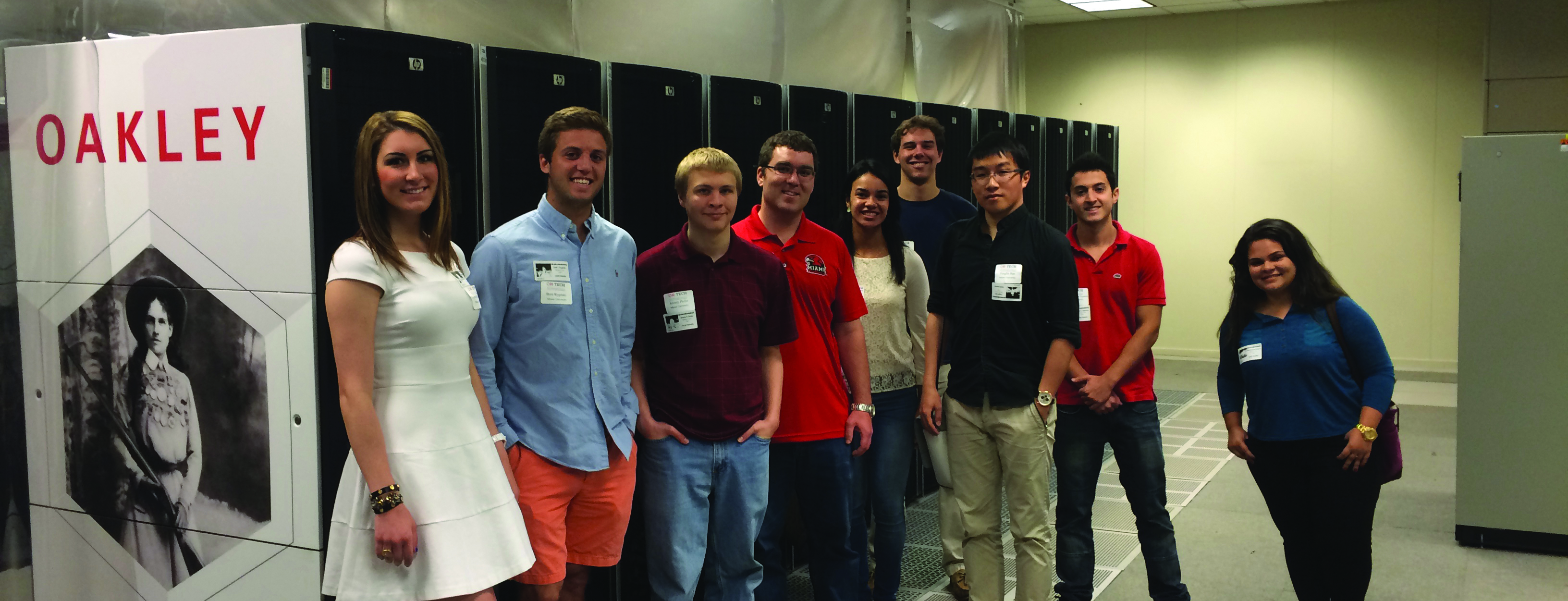In his classroom, Andrew Paluch, Ph.D., is not only teaching classical theories but is also training new generation of supercomputer-savvy scientists. The Miami University Department of Chemical, Paper and Biomedical Engineering professor is helping undergraduates design molecules, such as pharmaceuticals, at the atomistic level and to predict their physical properties using molecular simulation and electron structure calculations performed with the help of OSC’s high performance computing power and software packages.
“Everything I do is focused with undergraduates in mind, so I try to have some educational aspect to everything,” Paluch said. “Our goal is to try and link state-of-the-art computational technologies to traditional physical modeling approaches. The novelty in what we do is trying to link these two worlds which are often disconnected.”
One particular application is the design of pharmaceuticals. New drug candidates can be designed at the molecular level to bind to a particular protein target. Paluch’s group then goes further and applies electronic structure calculations and molecular simulation to predict properties such as toxicity and water solubility.
“Imagine you have proposed a new drug candidate or a new molecule has been synthesized. Early in the design process experimental data is often lacking and sufficient material does not exist for measurements,” Paluch said. “We’re trying to estimate these properties to see if this would be a realistic product to pursue further.”
Paluch’s undergraduate students see a direct connection to their coursework through the projects they are accomplishing with the help of OSC’s computational power. Many of their classroom active research projects have been published, and they have also presented at OSC’s annual Statewide Users Group meeting. The flash talks and poster competition allow students to present their research at an off-campus location, an opportunity most would not be able to pursue until at least graduate school.
“OSC is pretty invaluable to me. I’m in a non-Ph.D.-granting department so my financial pockets are much shallower than (other researchers),” Paluch said. “Without OSC I would never have been able to do anything that I’ve done with these undergrads, and they wouldn’t have had the experiences that they’ve had.”
Project Lead: Andrew Paluch, Ph.D., Miami University
Research Title: Molecular design of novel ionic liquid-based solvents for pharmaceutical applications
Funding Source: Miami University
Website: http://miamioh.edu/cec/academics/departments/cpb/about/faculty-staff/pal...

